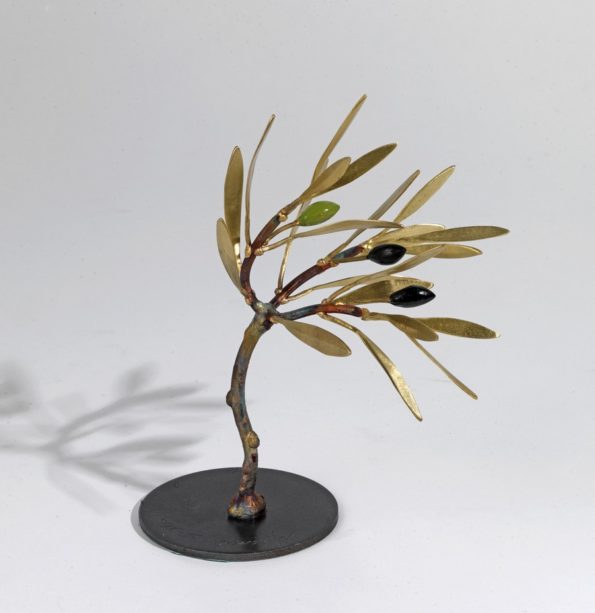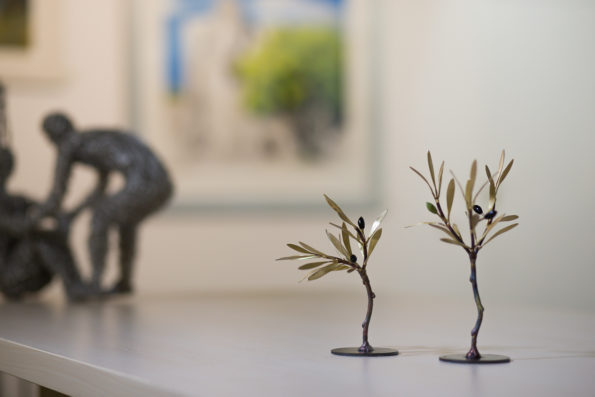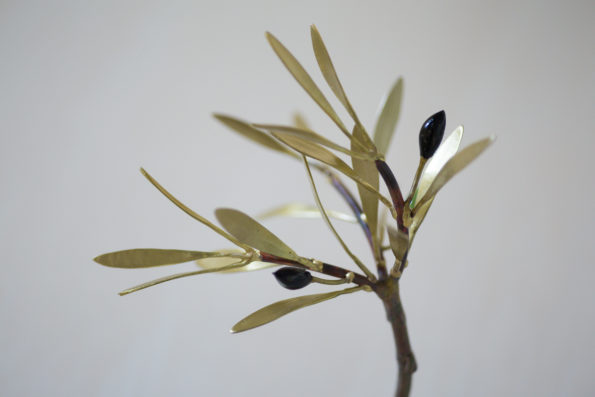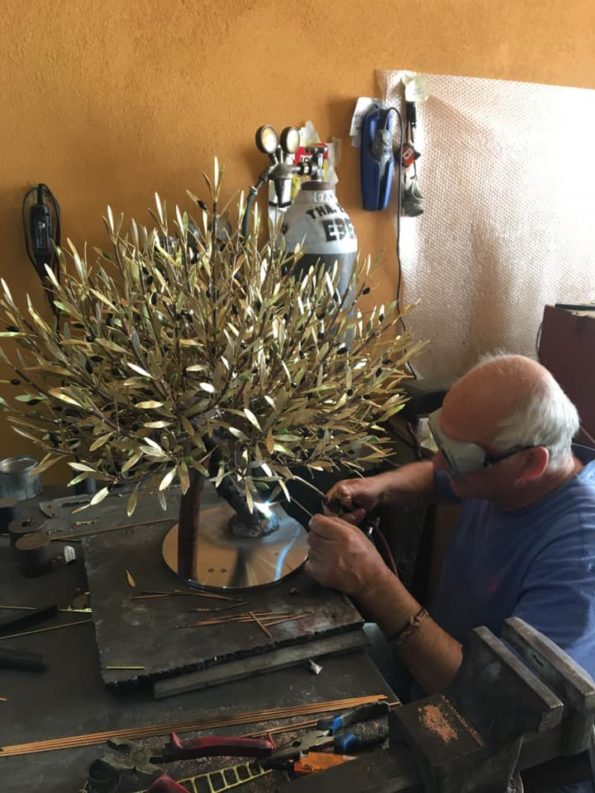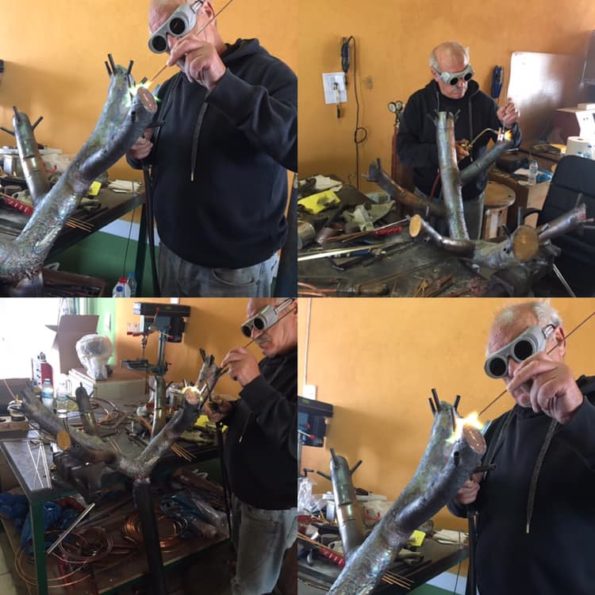The myth of the olive tree
A Pelasgian myth recounts how the city of Athens was named after a goddess of ancient Greece.
In older times, the city of Athens was called Kekropia, after its king, Kekropas. Although Kekropas was a serpentlike mythical being, he was a benevolent king and the people of Kekropia respected and obeyed him. But the ancient gods of Greece often meddled in human affairs, demanding the bestowment of cities, human spouses, even the fruits of human labor. Thus, the goddess Athena quarreled with god Poseidon over the sovereignty of Kekropia. They invited king Kekropas to judge their argument, calling upon the rest of the Olympian gods to attend their “fight”, which was held at the Acropolis Hill. The first contestant was Poseidon, who stroke the ground with his trident and a spurt of sea water
created a small lake which was given the name Erechtheida: his gift to the people of Kekropia was water. Then it was Athena’s turn to plant a young olive tree on a rock, which blossomed instantly, offering its fruits: this tree was her gift to the Kekropean people. When both gods had presented their gifts, Zeus announced the end of the contest and invited the rest of the gods, along with king Kekropas to make their verdict. Kekropas argued in his mind that his city was surrounded by water, rendering Poseidon’s gift somewhat redundant. Athena’s gift, on the other hand, didn’t need much water in order to make fruits and feed the people. Thus he declared the goddess Athena as the winner and the city was named Athens in her honor. As for that first olive tree, according to the legend it survived long after the godly contest, never failing to meet the city’s increasing needs.







€170.00
Code:
Μ11-01
Title:
Olive
Dimensions:11 × 13 × 16 cm
Material
This product is available.
Price:Brass
€170.00 Description:
Hand made and signed by Aggelos Panagiotidis.
In stock
CERTIFICATES OF AUTHENTICITY
ESHOP PURCHASES OVER 130.00 EUROS ARE FREE OF DELIVERY COSTS. ONLY FOR SHIPMENTS WITHIN GREECE
PLACE ORDER BY CALLING US AT 0030 2107245432
PAY ON DELIVERY, ONLY FOR SHIPMENTS WITHIN GREECE
SECURE TRANSACTIONS
PLACE ORDER BY CALLING US AT 0030 2107245432
PAY ON DELIVERY, ONLY FOR SHIPMENTS WITHIN GREECE
SECURE TRANSACTIONS
“The work of Aggelos Panayiotidis a maitre of his kind, combines harmonically the sculpture shape, worked perfectly, with the painting effect, which plays with the color and the theatrical-delusional reshaping of the place”
M. Stefanidis

